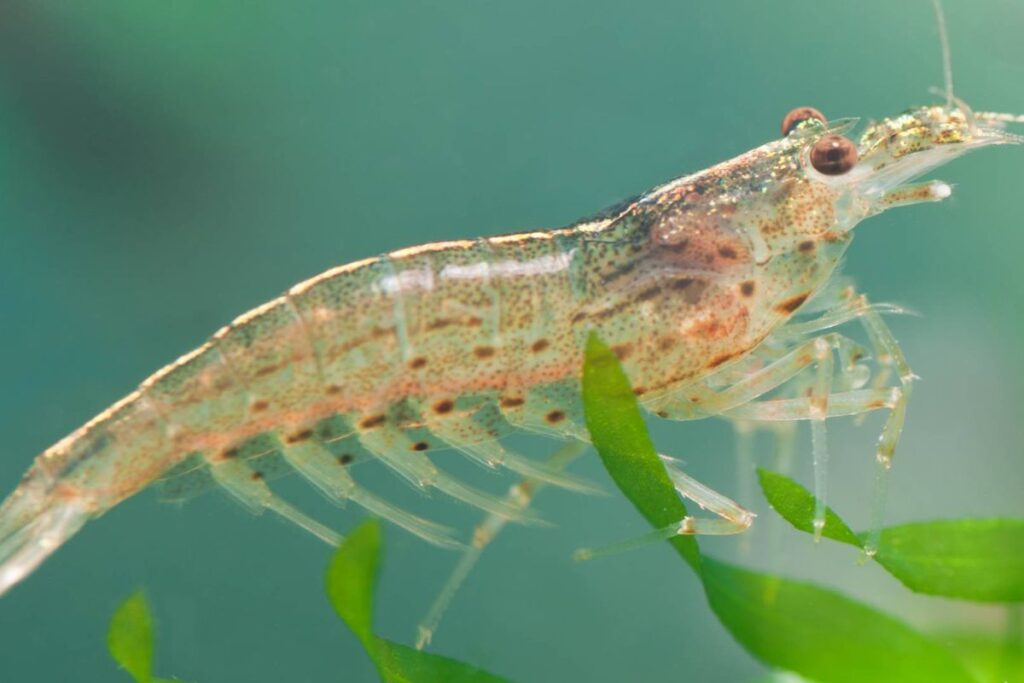Plastic waste has become a severe problem for our oceans, resulting in many animals dying from getting caught in it. Now, new research is indicating it may even be stopping them from reproducing. No sex for the creatures A novel study from the University of Portsmouth that the chemicals seeping from discarded plastics have been compromising the ability of certain shrimp-like creatures to mate and the consequences may be dire.
“This unsuccessful mating behavior has serious repercussions, not only for the species being tested but potentially for the population as a whole. These animals form pairs to reproduce. Once they were exposed to a chemical, they would break apart from their mate and take much longer -in some cases days – to repair, and sometimes not at all,” said Professor Alex Ford, from the Institute of Marine Sciences at the University of Portsmouth.
Ford argued that since the organisms are often found on European coasts, where they contribute significantly to the diets of fish and birds, their survival is essential to that of many other animals. Compromising them would result in a series of events that would see the food chain suffer both in the water and on land. Ford’s work examined four commonly detected compounds in plastics which are found in medical supplies, food packaging, nylon, medical devices, culinary utensils, nail polish, electronic equipment, films and toys.
The researchers chose these four chemicals because the threat they may represent to human health is widely established, with two of the compounds already being regulated in Europe. They proceeded to study their effects on shrimp-like organisms that have been shown to pair up and lock together for two days while mating. Researchers exposed pairs of them to each drug and tracked their behavior for a period of four days.
They discovered some alarming consequences, finding that at best, the organisms took substantially longer to re-pair, and at worst, they did not re-pair at all. In addition, the creatures exhibited a decline of up to 60 per cent in sperm count after being exposed to the chemicals. A dire warning “Although the animals we tested were exposed to much higher concentrations than you would normally find in the environment, the results indicate these chemicals can affect sperm count,” explained Ford.
“It is conceivable that if we did the experiment on shrimps that had been exposed for a longer period or during critical stages in their life history, it would affect their sperm levels and quality. ” The researchers are now warning that mating is essential to the survival of any species and, as such, they are strongly advising that environmental agencies around the world pay greater attention to behavioral data, insisting that their research reveals information that traditional toxicity tests cannot. To get an accurate picture of the potential harm caused by a given contaminant, the researchers recommend that more behavioral studies be conducted.
The study in Plastics contain a mixture of chemical additives that can leach into the environment and potentially cause harmful effects on reproduction and the endocrine system. Two of these chemicals, N-butyl benzenesulfonamide (NBBS) and triphenyl phosphate (TPHP), are among the top 30 organic chemicals detected in surface and groundwater and are currently placed on international watchlist for evaluation. Although bans have been placed on legacy pollutants such as diethylhexyl phthalate (DEHP) and dibutyl phthalate (DBP), their persistence remains a concern.
This study aimed to examine the impact of plastic additives, including NBBS, TPHP, DBP, and DEHP, on the reproductive behaviour and male fertility of the marine amphipod . Twenty precopulatory pairs of were exposed to varying concentrations of the four test chemicals to assess their pairing behaviour. A high-throughput methodology was developed and optimised to record the contact time and re-pair time within 15 min and additional point observations for 96 h.
The study found that low levels of NBBS, TPHP, and DEHP prolonged the contact and re-pairing time of amphipods and the proportion of pairs reduced drastically with re-pairing success ranging from 75% to 100% in the control group and 0%–85% in the exposed groups at 96 h. Sperm count declined by 40% and 60% in the 50 μg/l and 500 μg/l DBP groups, respectively, whereas TPHP resulted in significantly lower sperms in 50 μg/l exposed group. Animals exposed to NBBS and DEHP showed high interindividual variability in all exposed groups.
Overall, this study provides evidence that plastic additives can disrupt the reproductive mechanisms and sperm counts of amphipods at environmentally relevant concentrations. Our research also demonstrated the usefulness of the precopulatory pairing mechanism as a sensitive endpoint in ecotoxicity assessments to proactively mitigate population-level effects in the aquatic environment. .
From: interestingengineering
URL: https://interestingengineering.com/science/aquatic-creatures-are-refusing-to-have-sex-because-of-plastic-waste
